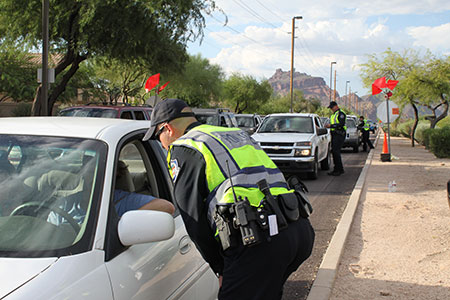How to Survive a Sobriety Checkpoint

The use of sobriety checkpoints is a well-established police tactic designed to get intoxicated drivers off the roads. You are more likely to see a checkpoint around holidays and other special events where people tend to drink and drive more – i.e. Memorial Day, Fourth of July, or Labor Day.
The constitutionality of these checkpoints was upheld by the United States Supreme Court in a 1990 case, Michigan Department of State Police v. Sitz. While effective at catching intoxicated drivers, there is a chance of police overreach in these situations. Follow these tips to get through a sobriety checkpoint without incident.
- Don’t drive while intoxicated.
- Don’t run! If you turn off or execute a U-turn to avoid a checkpoint, odds are you will be pulled over.
- Make sure your driver’s license, vehicle registration, and insurance are valid.
- Never travel with an open container of alcohol, drugs, or drug paraphernalia in your vehicle.
- Be polite and respectful to the officers at the checkpoint.
- Remind your passengers that as the driver, you are responsible and will do the talking. You do not want a disrespectful passenger making things worse.
- Politely decline to answer any incriminating questions the officer asks. You have the right to an attorney and should exercise it.
